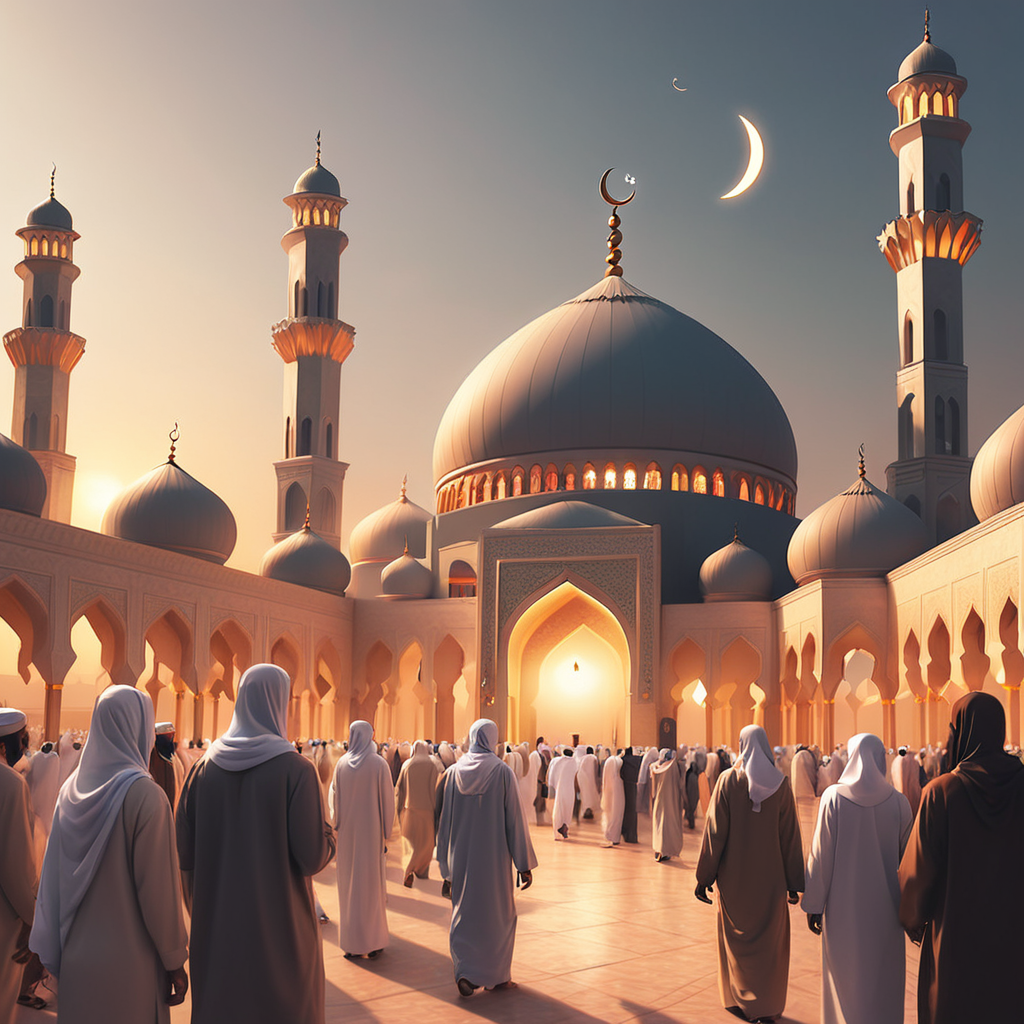

Key prayers to say in last ten nights of Ramadan
The last ten days of Ramadan hold a special significance in the Islamic calendar, marked by increased devotion, reflection, and spiritual fervor.
It is during Ramadan that Muslims seek the Night of Power (Laylat al-Qadr), a night described in the Quran as better than a thousand months (Quran 97:3).
To maximize the blessings of these blessed days, engaging in specific prayers holds immense importance. Here are key prayers to say in the last ten days of Ramadan, guiding believers towards deeper spiritual connection and fulfillment.
Tahajjud Prayer
Tahajjud, also known as the Night Prayer, is a voluntary prayer offered during the latter part of the night. It holds particular significance during the last ten days of Ramadan, as it provides an opportunity for uninterrupted communion with Allah.
Muslims wake up after midnight to engage in Tahajjud, seeking forgiveness, guidance, and blessings. The Prophet Muhammad (peace be upon him) emphasized the virtues of Tahajjud, describing it as a means of drawing closer to Allah and seeking His mercy.
Salat al-Tasbeeh
Salat al-Tasbeeh is a special prayer consisting of four units (rak’ahs) performed with specific glorifications and supplications.
It is recommended to recite Tasbeeh (glorification of Allah) 300 times in each unit, totaling 1200 times throughout the prayer. Salat al-Tasbeeh is believed to carry immense spiritual rewards and is often recommended to be performed during the last ten days of Ramadan as a means of seeking forgiveness, purification, and divine favor.
Dua for Laylat al-Qadr
Laylat al-Qadr, or the Night of Power, is one of the holiest nights in Islam, occurring within the last ten days of Ramadan. Muslims fervently seek this blessed night, engaging in prayers, supplications, and remembrance of Allah.
One of the most recommended prayers for Laylat al-Qadr is the Dua for Laylat al-Qadr, seeking Allah’s mercy, forgiveness, and blessings. This heartfelt supplication reflects the profound significance of Laylat al-Qadr and the desire to attain divine favor and salvation.
Here are some prayers that can be recited during Laylatul Qadr:
“Allahumma innaka ‘afuwwun tuhibbu’l-‘afwa fa’fu ‘anni.” (O Allah, You are the Most Forgiving, and You love to forgive, so forgive me.)
“Rabbana atina fid-dunya hasanatan wa fil ‘akhirati hasanatan waqina ‘azaaban-nar.” (Our Lord, grant us good in this world and good in the life to come and keep us safe from the punishment of Hellfire.)
Dua for Seeking Forgiveness (Istighfar)
Seeking forgiveness (Istighfar) is an essential aspect of spiritual purification and repentance in Islam. During the last ten days of Ramadan, Muslims are encouraged to engage in frequent Istighfar, acknowledging their sins and shortcomings before Allah.
The Prophet Muhammad (peace be upon him) himself sought forgiveness abundantly, setting an example for believers to follow. Through sincere repentance and seeking forgiveness, Muslims can cleanse their hearts and souls, preparing for the blessings of Ramadan.
Salat al-Duha
Salat al-Duha, also known as the Forenoon Prayer, is a voluntary prayer performed after sunrise and before noon. It is particularly recommended during the last ten days of Ramadan, as it symbolizes gratitude for the blessings of the day and serves as a means of drawing closer to Allah.
The Prophet Muhammad (peace be upon him) praised the virtues of Salat al-Duha, promising immense rewards for those who engage in it regularly. By performing Salat al-Duha during Ramadan, believers express gratitude for the blessings of the month and seek divine guidance for the day ahead.
Summary:
The last ten days of Ramadan offer a precious opportunity for spiritual elevation and divine connection. By engaging in key prayers during this sacred period, Muslims can deepen their faith, seek forgiveness, and attain closeness to Allah.
May these prayers serve as a source of inspiration and guidance for believers as they journey through the final days of Ramadan, seeking the blessings of Laylat al-Qadr and the mercy of the Most Merciful.

Leave a Reply